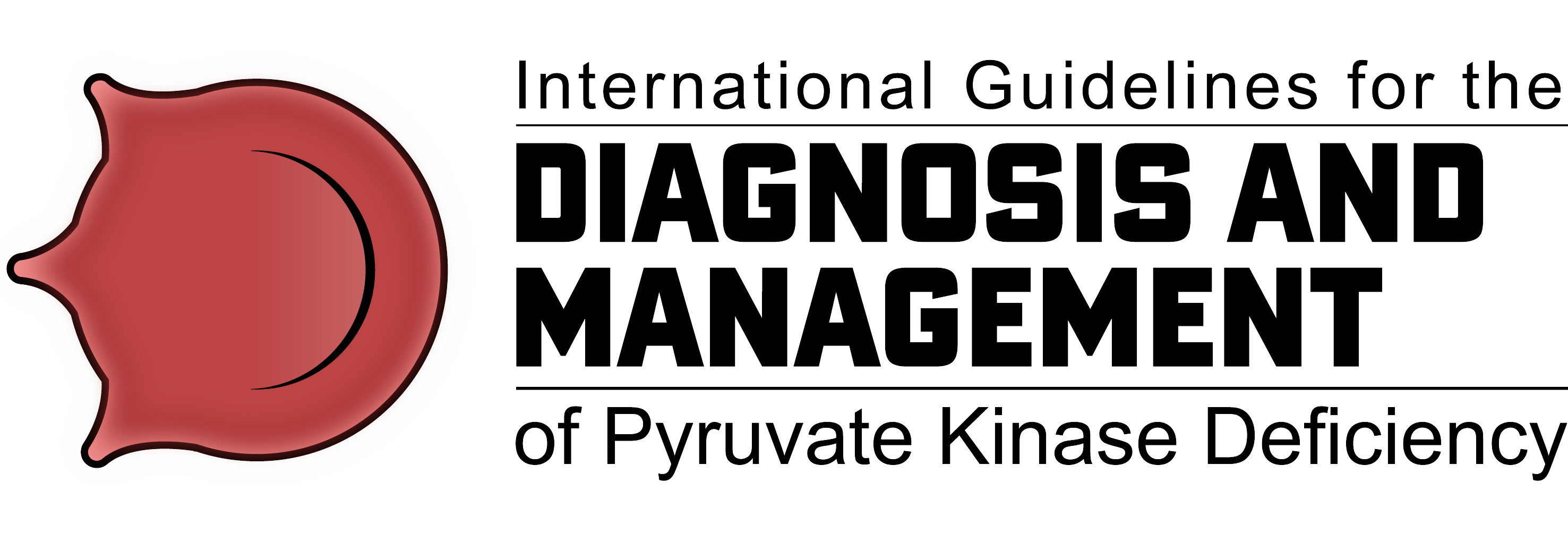Standard Management of Anemia in Pyruvate Kinase Deficiency
Standard Management of Anemia in Pyruvate Kinase Deficiency
Who is affected: Adults, infants, children, and newborns with PK deficiency
Why it matters:
Removing the spleen and red cell transfusions are the two standard supportive treatments to managing anemia and symptoms of PK deficiency. As for most rare diseases, there isn’t enough research indicating whether regular transfusions or splenectomy should be used as the first line of treatment. The recommendations are based on observational and registry studies along with expert practice. It's important to discuss the options with your hematologist to determine which are best for your situation.
Red blood cell transfusion guidelines:
Regular red cell transfusions (every 3-12 weeks) are recommended
- For children younger than 5 years of age with symptomatic anemia or delay in growth and development
- For children 5 years or older & adults with symptomatic anemia despite their splenectomy status
- On the basis of anemia symptoms and complications rather than a universal hemoglobin threshold
Splenectomy guidelines:
Splenectomy
- Discuss the individualized risks and benefits of splenectomy with a hematologist to treat anemia in children 5 years and older and in adults who have symptomatic anemia to reduce transfusion burden and alleviate symptoms
- Consider cholecystectomy at the time of splenectomy to reduce the risk of gallstones or biliary sludge
Why it matters:
The burden of having a rare disease or caring for someone with PK deficiency can be overwhelming. The Guidelines Committee recognizes the challenge families and individuals face with complications including anxiety and depression and the need for proper mental health support.
Psychological support
- Health care providers should offer appropriate psychological support for children and adults with pyruvate kinase deficiency and their families and/or caregivers
About folic acid:
Folic acid is also commonly prescribed for people with PK deficiency because of its long tradition of use in people with hemolytic anemias. Erythropoiesis, or red blood cell formation, requires iron, vitamin B12, folate, and heme, and in the case of increased rates of erythropoiesis, more of the vitamins B12 and folate. People who eat meat-based diets tend to eat enough B12 but may be short on folate, which has led to the common practice of folate supplementation in people with PK deficiency. Some foods are supplemented with folic acid, while other foods are naturally rich sources of folate.
Bottom line:
Anemia can have damaging physical and psychological effects on people living with PK deficiency. Access to red blood cell transfusions to manage anemia is now based on symptoms rather than a standardized reference hemoglobin allowing people with PK deficiency more advocacy power. Splenectomy continues to be a treatment option that should be considered individually upon consultation with a hematologist.
